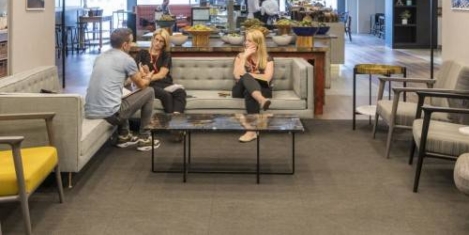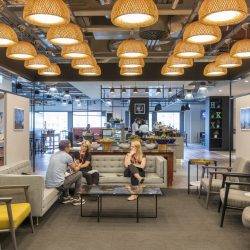To provide the best experiences, we use technologies like cookies to store and/or access device information. Consenting to these technologies will allow us to process data such as browsing behaviour or unique IDs on this site. Not consenting or withdrawing consent, may adversely affect certain features and functions.
The technical storage or access is strictly necessary for the legitimate purpose of enabling the use of a specific service explicitly requested by the subscriber or user, or for the sole purpose of carrying out the transmission of a communication over an electronic communications network.
The technical storage or access is necessary for the legitimate purpose of storing preferences that are not requested by the subscriber or user.
The technical storage or access that is used exclusively for statistical purposes.
The technical storage or access that is used exclusively for anonymous statistical purposes. Without a subpoena, voluntary compliance on the part of your Internet Service Provider, or additional records from a third party, information stored or retrieved for this purpose alone cannot usually be used to identify you.
The technical storage or access is required to create user profiles to send advertising, or to track the user on a website or across several websites for similar marketing purposes.
 Deloitte’s new UK and North West Europe headquarters at 1 New Street Square, EC4, is claimed to be the largest office in the world to achieve leading certifications for being both an exemplar green building and one designed to enhance the wellbeing of its people. The new 270,000 sq ft HQ, which Deloitte occupied in July, is the culmination of a four year programme redefining the workplace of the future for the firm’s people and clients. The space was designed by ID:SR with furniture supplied by Sketch Studios.
Deloitte’s new UK and North West Europe headquarters at 1 New Street Square, EC4, is claimed to be the largest office in the world to achieve leading certifications for being both an exemplar green building and one designed to enhance the wellbeing of its people. The new 270,000 sq ft HQ, which Deloitte occupied in July, is the culmination of a four year programme redefining the workplace of the future for the firm’s people and clients. The space was designed by ID:SR with furniture supplied by Sketch Studios.











 Flexible workers claim to work more effectively than those working a traditional ‘nine-to-five’, with a quarter of respondents (27 percent) in a recent poll saying they work longer hours in their new flexible working routine than they did when they worked normal office hours. The research, which was commissioned by the AAT (Association of Accounting Technicians) found that flexible workers think they put in almost seven hours more each week on average than they did previously. The research, which looked at the productivity of a group of workers who set their own hours or working location against a group of those who are not doing so, found that the former benefit from feeling happier and less stressed.
Flexible workers claim to work more effectively than those working a traditional ‘nine-to-five’, with a quarter of respondents (27 percent) in a recent poll saying they work longer hours in their new flexible working routine than they did when they worked normal office hours. The research, which was commissioned by the AAT (Association of Accounting Technicians) found that flexible workers think they put in almost seven hours more each week on average than they did previously. The research, which looked at the productivity of a group of workers who set their own hours or working location against a group of those who are not doing so, found that the former benefit from feeling happier and less stressed. 


 Almost half (49 percent) of UK employees admit they speak to colleagues about health concerns before sharing it with a partner or loved one, claims new research by Bupa Health Clinics. Stress, sleep, anxiety and weight problems are among the main concerns being discussed by employees at work, before confiding in those closest to home. The new report found that 46 percent of employees prefer to talk about health with a colleague over a loved one. Many do so with good intentions with more than a third finding it easier to talk to a colleague as they are less likely to worry.
Almost half (49 percent) of UK employees admit they speak to colleagues about health concerns before sharing it with a partner or loved one, claims new research by Bupa Health Clinics. Stress, sleep, anxiety and weight problems are among the main concerns being discussed by employees at work, before confiding in those closest to home. The new report found that 46 percent of employees prefer to talk about health with a colleague over a loved one. Many do so with good intentions with more than a third finding it easier to talk to a colleague as they are less likely to worry.

















December 7, 2018
Seven reasons why this will not be the office of the future
by Mark Eltringham • Comment, Facilities management, Furniture, Workplace design
(more…)